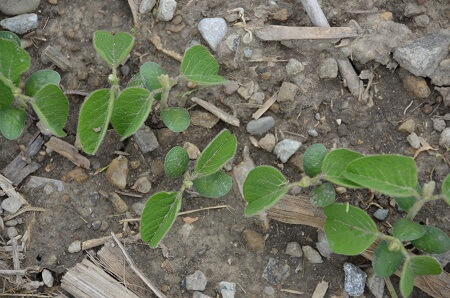Stay Informed
Safe use of dicamba requires both care and communication
INFB would like to remind its members that if you are planning on growing dicamba-tolerant soybeans in 2017, there are some new challenges to confront.
The experiences in the mid-south region of the country last year would suggest that this new technology, as with many new technologies, must be used very carefully.
INFB can’t over-emphasize the possible dangers that this new herbicide use will bring, not only to all specialty and sensitive crops, but also to the landscapes and gardens of rural homeowners.
The problem is that dicamba is known to move off-target through both drift and volatility – and it can move great distances, sometimes in excess of 2 miles, even several days after a legal and safe application.
This increased volatility and drift is what makes this herbicide different than most others. It only takes a small amount to injure non-target plants, and that is the major difference between dicamba and other herbicides used today.

There is no doubt that there were instances of dicamba misuse in the mid-south last year. Comments that recent changes in approved formulations are going to magically prevent drift and injury are misleading. Forty percent of the injuries in Missouri were related to temperature inversion, and the majority of injuries were related to drift.
The demands you face to get your crops sprayed are great, especially when Mother Nature might not be cooperating. This sometimes results in the temptation to push the window a little bit in regards to wind and weather conditions in order to get all your crops sprayed timely. The possibility of a wet planting season is very real at this time, so your demands may be exacerbated. We have talked with some crop protection service providers that will charge an additional per acre fee to spray dicamba due to the increased liability involved.
The key here is communication and in knowing what is planted around your dicamba-tolerant soybeans. We have a wide variety of expensive specialty crops in Indiana, and damages resulting from spray drift could be very costly to you and your neighbor.
Dicamba users have two years to prove to the Environmental Protection Agency that they can follow the dicamba formulation label requirements or the EPA will let its approval expire at the end of 2018.
So, by taking the extra time to make sure of your label instructions and communicate with your neighbors, the hope is that your 2017 cropping season will be a safe and productive one.




